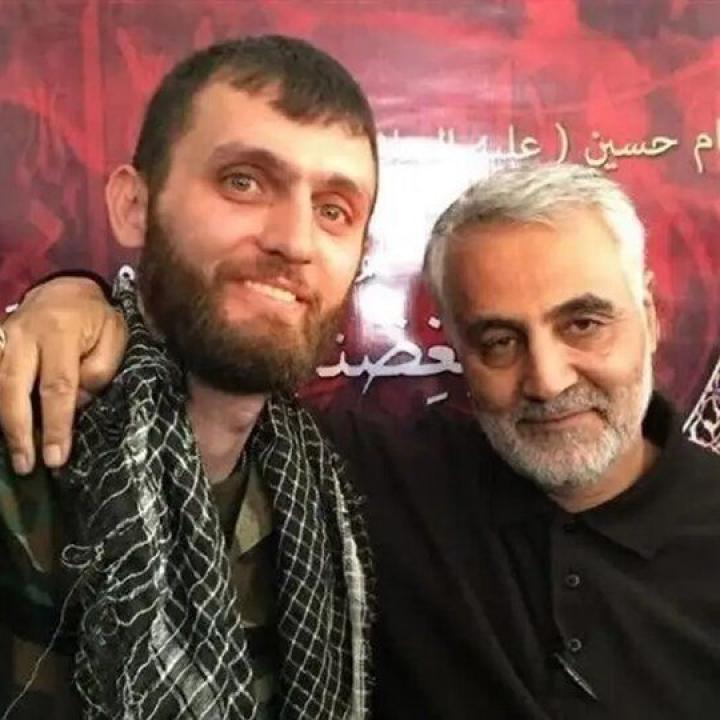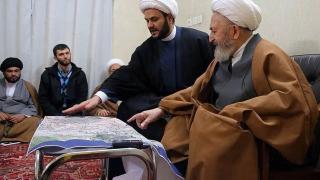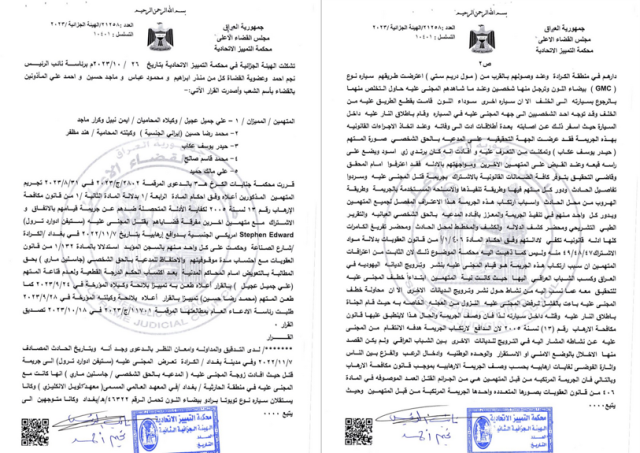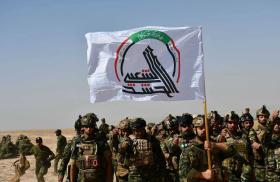
Iran Makes Second Effort to Recover IRGC Officer from Iraqi Custody

The regime wants Baghdad to hand over the officer who orchestrated the 2022 murder of U.S. citizen Stephen Troell—not the first time it has leveraged Iraqi militia factions to seek his release.
On December 20, the FBI unsealed its criminal case against Iranian national Mohammad Reza Nouri (aka Muhammad Rida Husayn, Ali Asghar Nuri, and Abu Abbas) in connection with his alleged role in orchestrating the November 7, 2022, murder of American Stephen Troell in Baghdad. In the case, Nour is described as a captain in Iran's Islamic Revolutionary Guard Corps-Qods Force (IRGC-QF) and an “advisor to armed militia groups in Iraq.” The twenty-eight-page unsealed deposition by an FBI special agent provides extensive detail on Nouri’s command of the nine-man Iraqi cell (drawn from multiple unnamed “militias”) that sought to kidnap at least three people and murder at least seven others (including U.S. citizens) in a campaign intended to avenge the death of Qods Force commander Qasem Soleimani and build leverage over the United States through hostage-taking.
With strong U.S. urging, Iraqi authorities captured four Iraqi suspects from the nine-man cell in the weeks after the killing: Haydar Yousef Akab Hachem, Muhammad Qasim Salih Mahdi, Ali Malik Hamid Majid, and Ali Jamil Ajeel Saghi. They also apprehended one Iranian (Nouri) on March 26, 2023. Days after Nouri's arrest, three officials approached the Iraqi judiciary to seek his release: Prime Minister Mohammed Shia al-Sudani, an IRGC-QF colonel known as Hajji Jawad (Nouri's direct commander), and Jawad al-Talibawi, deputy head of the Iran-backed militia Asaib Ahl al-Haq. This high-ranking delegation made the argument that detaining the four Iraqis for Troell's slaying would be enough to satisfy the Americans, so the Iranian should be released.
Instead, the judiciary (with strong U.S. urging) held on to Nouri and the four Iraqis. All five (at the time publicly unnamed) were found guilty of acts of terrorism and sentenced to life imprisonment by the Karkh Criminal Court on August 31, 2023—a notable compromise given that their actions were legally punishable by death. That October, the five names were leaked to the public, though identifying photographs of the men were not made available and no confessions were televised (another unusual aspect of the case).
In June 2024, the case took another turn: the Persian-language satellite network Iran International reported that the IRGC-QF, together with the Iranian judiciary and Foreign Ministry, had sought to recover Nouri. According to the network, Kazem Gharibabadi, the assistant to the judiciary's head of international affairs, claimed that Tehran had successfully fought Washington's efforts to get Nouri extradited to the United States, describing him as a “media advisor.” Moreover, according to al-Sharqiya News, Gharibabadi also indicated that Iran had shifted the jurisdiction of Nouri’s charges from Iraqi anti-terrorism law to criminal law in late 2023.
At the time, Iran International connected Nouri to the U.S.-designated terrorist organization Harakat Hezbollah al-Nujaba. Iran’s Tasnim News Agency published pictures of him next to Akram Kaabi, Nujaba's secretary-general (Figure 2).
Recently, Tehran has been seeking Nouri’s release again, this time as one of over a hundred Iranians listed as part of a prisoner swap with Iraq. The two countries have a mechanism for exchanging sentenced prisoners so they can serve their sentence in their homeland. Nouri's name appeared on a new list of such prisoners that Iran submitted to Iraq's Justice Ministry. Judges are now feeling pressure to approve the request, in particular after Prime Minister Sudani visited with Nouri's relatives during a mid-January trip to Iran.
U.S. pressure has thus far prevented Sudani from securing Nouri’s release. Maintaining this pressure is vital if Washington hopes to prevent the Iran-backed Coordination Framework from sending Nouri home before he can be extradited to the United States and tried for his deadly crimes against American citizens. U.S. officials should also push Baghdad to identify the four convicted Iraqis by image in order to aid surveillance and ensure they have not been quietly released. Likewise, future amnesties in Iraq should be carefully monitored for any signs of their release. Moreover, the remaining five attackers at large—including Ali Abdal-Ridha Salih Alwan al-Batbuti (aka Ali Fafona), a son-in-law of AAH’s Jawad al-Talibawi and the man who actually shot Troell—should be vigorously pursued if they reappear in Iraq. Indeed, the Troell case should be treated as a bellwether for whether the Sudani government and future Iraqi administrations are serious about being a friend and partner of the United States.






